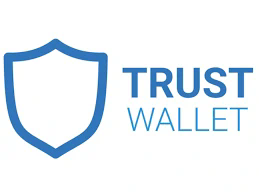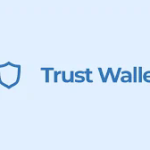# Understanding Trust Wallet: A Comprehensive Guide
## Introduction to Trust Wallet
Trust Wallet is a mobile cryptocurrency wallet that allows users to store, earn, and manage a broad range of crypto assets. Launched in 2017, it became an official wallet for Binance in 2018. The wallet is available for both iOS and Android devices, offering a versatile solution for users looking to interact with decentralized applications (dApps), manage non-fungible tokens (NFTs), and conduct transactions on various blockchain networks.
## The Origin and Evolution of Trust Wallet
Dating back to its inception, Trust Wallet was created by Viktor Radchenko. His vision was to provide a simple and user-friendly wallet that could support a diverse portfolio of cryptocurrencies. Over the years, Trust Wallet has evolved, incorporating additional features, such as integrated decentralized exchanges (DEXs) and staking capabilities, which allow users to earn rewards on their assets.
## Key Features of Trust Wallet
Trust Wallet’s functionality sets it apart from other wallets in the market. The wallet’s key features include:
1. **Multi-Currency Support**: Trust Wallet supports thousands of cryptocurrencies and tokens across multiple chains, including Ethereum, Binance Smart Chain, and Bitcoin, making it a one-stop solution for asset management.
2. **Decentralized Exchange Integration**: Users can trade assets directly from their wallets using integrated exchanges like PancakeSwap and Uniswap, enhancing the flexibility and accessibility of trading.
3. **Staking Capabilities**: Trust Wallet allows users to stake supported cryptocurrencies directly from the app, enabling them to earn passive income without leaving the wallet interface.
4. **DApp Browser**: The built-in DApp browser facilitates seamless access to decentralized applications across various sectors, such as DeFi, gaming, and NFTs.
5. **NFT Management**: Users can store and showcase their NFTs, providing an all-encompassing platform for both fungible and non-fungible tokens.
## Security Aspects of Trust Wallet
Security is paramount in the cryptocurrency sector, and Trust Wallet implements several measures to protect user assets:
1. **Private Key Storage**: Trust Wallet is a non-custodial wallet, meaning that users retain sole ownership of their private keys stored locally on their devices, mitigating the risk of hacks inherent in custodial wallets.
2. **Biometric Access**: The wallet supports biometric security features, such as fingerprint and facial recognition, adding an extra layer of protection to user accounts.
3. **Seed Phrase Backup**: When creating a wallet, users receive a 12-word recovery phrase that is crucial for restoring access to their funds. This phrase must be stored securely, as anyone with access to it can control the wallet.
4. **Regular Updates**: Trust Wallet developers continuously update the app to address security vulnerabilities and improve usability, ensuring that users benefit from the latest security standards.
## User Experience and Interface
The user interface of Trust Wallet is designed with simplicity and functionality in mind. Here’s what users typically experience:
1. **Intuitive Navigation**: The app features a clean layout with straightforward navigation, making it accessible for both beginners and experienced users.
2. **Portfolio Management**: Users can view their assets in one unified dashboard, providing an at-a-glance view of their holdings and market performance.
3. **Easy Transactions**: Sending and receiving cryptocurrencies is streamlined through QR codes and a simple input interface, making it a matter of a few taps.
4. **Educational Resources**: Trust Wallet provides users with educational resources and tutorials, helping them better understand cryptocurrency management and storage.

## Trust Wallet and Decentralized Finance (DeFi)
Trust Wallet plays a pivotal role in the burgeoning DeFi landscape by enabling users to interact with various DeFi protocols. Key aspects include:
1. **Access to DeFi Protocols**: Users can access numerous DeFi platforms without needing to create separate accounts, allowing for seamless integration between their wallet and DeFi services.
2. **Liquidity Provision**: Trust Wallet users can provide liquidity to decentralized exchanges, earn trading fees, and participate in yield farming directly through the app.
3. **Lending and Borrowing**: Users can leverage their crypto assets for loans or earn interest through platforms that offer lending services, often with competitive rates.
## The Role of Trust Wallet in NFT Market
As the NFT market has surged, Trust Wallet has adapted to meet the needs of NFT enthusiasts. The features supporting this include:
1. **NFT Storage and Display**: Trust Wallet allows users to store various NFTs, providing a compelling interface for showcasing and managing these unique assets.
2. **Access to NFT Marketplaces**: Users can easily explore and trade NFTs on marketplaces like OpenSea and Rarible directly from the wallet.
3. **Minting Capabilities**: Some blockchain assets can be minted into NFTs, and Trust Wallet helps facilitate this process through integrated dApps.
## Comparative Analysis: Trust Wallet vs. Other Wallets
When considering different wallets in the market, it’s important to recognize how Trust Wallet compares:
1. **Custodial vs. Non-Custodial**: Many wallets are custodial, necessitating trust in a third party. Trust Wallet’s non-custodial approach assures users complete control over their funds.
2. **Feature-Rich vs. Simplicity**: While some wallets focus solely on basic functionalities, Trust Wallet offers an extensive range of features, including DEX integration and staking.
3. **Multi-Chain Support**: Unlike many wallets, Trust Wallet supports a large number of blockchains and tokens, offering unmatched versatility for asset management.
4. **Community Trust**: Trust Wallet has built a strong reputation in the crypto community, backed by Binance, ensuring ongoing support and development.
## Trust Wallet’s Role in the Crypto Ecosystem
Trust Wallet is more than just a digital wallet; it’s an integral part of the broader cryptocurrency ecosystem. Its influence can be seen in various areas:
1. **Enabling New Users**: By providing a user-friendly platform, Trust Wallet helps onboard new users into the crypto space, simplifying entry into what can be a complex domain.
2. **Promoting Decentralization**: Trust Wallet epitomizes the ethos of decentralization, allowing users to retain control over their assets and engage with decentralized finance directly.
3. **Supporting Project Development**: By integrating various blockchain projects and protocols, Trust Wallet aids in the expansion of the DeFi ecosystem, contributing to innovation and growth.
## Future Developments of Trust Wallet
As the crypto landscape continues to evolve, Trust Wallet is poised to enhance its offerings:
1. **Enhanced Features**: Future updates may introduce additional security measures, new token support, and improved user interfaces, responding to user feedback and industry trends.
2. **Broadened Ecosystem Integration**: Trust Wallet may expand its partnerships with emerging DeFi and NFT platforms, providing users with streamlined access to cutting-edge services.
3. **Community Engagement**: As the platform grows, engaging the community with events, feedback opportunities, and governance participation may become a greater focus.
## Conclusion
Trust Wallet stands as a robust and versatile option for cryptocurrency enthusiasts looking to manage their assets securely and efficiently. Its blend of user-centric design, comprehensive features, and unwavering commitment to security makes it an invaluable tool in the digital finance landscape. For those navigating the complex world of cryptocurrencies, Trust Wallet offers a reliable and innovative solution, helping users engage with the evolving ecosystem of decentralized finance, NFTs, and more. As the crypto space continues to mature, Trust Wallet is expected to play an increasingly prominent role in shaping the future of digital asset management.


